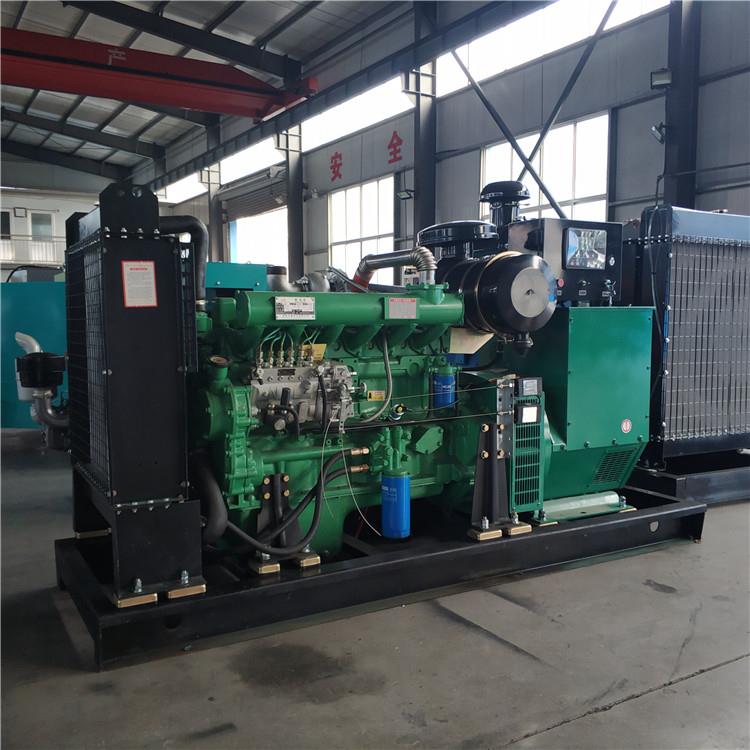Introduction:
In today's world, where power outages can occur unexpectedly and disrupt our daily lives, having a reliable backup power solution is essential. Whether it's for residential, commercial, or industrial purposes, diesel generators have proven to be a trusted choice for emergency backup power. This article explores the various aspects of diesel generators and why they are the go-to solution in times of power failure.
Section 1: Understanding Diesel Generators
1.1 What is a Diesel Generator?
30kw diesel generator for small businesses is a combination of a diesel engine and an electric generator, specifically designed to generate electricity. It operates by burning diesel fuel in an internal combustion engine, which then powers the generator to produce electrical energy.
1.2 How Do Diesel Generators Work?
Diesel generators work on the principle of converting mechanical energy into electrical energy. The process involves several components, including the engine, alternator, fuel system, cooling system, and control panel. Understanding the working mechanism of these components is crucial to comprehend the overall functionality of a diesel generator.
Section 2: Advantages of Diesel Generators

2.1 Reliability and Durability
One of the primary advantages of diesel generators is their reliability and durability. Diesel engines are designed to withstand heavy loads and operate for extended periods without experiencing any significant issues. This makes them ideal for emergency backup power, as they can provide continuous electricity for prolonged durations.
2.2 Fuel Efficiency
Diesel generators are known for their fuel efficiency compared to other types of generators. Diesel has a higher energy density, meaning it provides more power per unit of fuel consumed. This efficiency translates into lower fuel consumption and reduced operating costs over the long term.
2.3 Cost-effectiveness
While the initial investment in a diesel generator may be higher compared to other options, the long-term cost-effectiveness of diesel generators is undeniable. With proper maintenance, these generators can last for several decades, making them a cost-effective solution for backup power needs.
2.4 Availability of Fuel
Diesel fuel is readily available in most areas, making it convenient for users to source fuel during emergencies. Unlike other types of generators that rely on specific fuels or have limited availability, diesel generators can be fueled up quickly, ensuring a continuous power supply during critical situations.
Section 3: Applications of Diesel Generators
3.1 Residential Backup Power
For homeowners, power outages can be inconvenient and sometimes even dangerous. Diesel generators provide a reliable backup power source, allowing residents to continue their daily activities without disruption. They can power essential appliances, such as refrigerators, air conditioning units, and lighting systems, ensuring the comfort and safety of the household.
3.2 Commercial and Industrial Backup Power
In commercial and industrial settings, power outages can lead to significant financial losses and productivity setbacks. Diesel generators are extensively used in these sectors to maintain critical operations during blackouts. They can power machinery, computer systems, communication networks, and other essential equipment, ensuring uninterrupted workflow and preventing financial losses.
3.3 Construction Sites and Remote Areas
Diesel generators are widely used in construction sites and remote areas where access to the power grid is limited. These generators provide temporary power solutions, enabling construction activities and other operations to proceed smoothly. They are also utilized in remote areas where the power grid infrastructure is yet to be developed.
Section 4: Maintenance and Safety Considerations
4.1 Regular Maintenance
Proper maintenance is crucial to ensure the optimal performance and longevity of diesel generators. This section discusses the essential maintenance tasks, such as regular inspections, oil and filter changes, fuel system checks, and load testing. Following a comprehensive maintenance schedule will help avoid breakdowns and ensure the generator is always ready for emergencies.
4.2 Safety Precautions
Operating diesel generators requires adherence to specific safety guidelines. This section highlights the importance of proper ventilation to prevent carbon monoxide poisoning, electrical safety measures, fire prevention, and handling of fuel. Understanding and implementing these safety precautions is essential for the smooth and safe operation of diesel generators.
Section 5: Future Trends and Innovations
5.1 Hybrid Power Solutions
As the world moves towards sustainable energy solutions, hybrid power systems that combine diesel generators with renewable energy sources are gaining popularity. This section explores the advancements in hybrid power solutions, such as integrating solar panels, wind turbines, and energy storage systems with diesel generators, to achieve a more sustainable and efficient backup power setup.
5.2 Smart Monitoring and Control Systems
The emergence of advanced technologies has led to the development of smart monitoring and control systems for diesel generators. These systems allow users to remotely monitor and control their generators, perform diagnostics, and receive real-time alerts about any issues or maintenance requirements. This section discusses the benefits and future possibilities of such smart systems.
Conclusion:
Diesel generators have established themselves as the go-to solution for emergency backup power due to their reliability, durability, fuel efficiency, and cost-effectiveness. From residential backup power to commercial and industrial applications, diesel generators play a significant role in ensuring uninterrupted electricity supply during power outages. Proper maintenance and adherence to safety guidelines are essential for their optimal performance and safe operation. With the advent of hybrid power solutions and smart monitoring systems, diesel generators are expected to continue evolving to meet the changing energy landscape.
